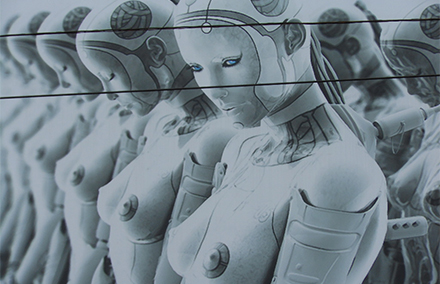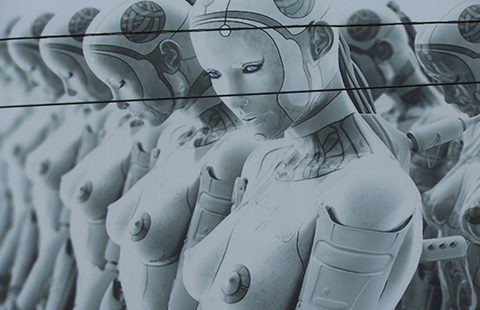
This month a conference on sex and love with robots in Malaysia was cancelled by authorities, something the Campaign Against Sex Robots labeled as ‘welcome news’. New Mandala invited the campaign’s director, Kathleen Richardson, to outline why.
There was some good news in October that gives me hope.
The Second International Conference on Sex and Love with robots was cancelled by Malaysian authorities because the country didn’t want to encourage ‘sex with robots’.
Advocates of sex (and love) with robots are really advocates of the sex trade.
Those who claim that the science fiction of sex with robots will soon be fact, get their inspiration from the sex trade in many ways: the legitimate use of human bodies for sexual pleasure at any cost, the profound loss of connection caused by depersonalised sex, violence and technology, and the neoliberal dream that there is no difference between a person and a thing.
These are the reasons I felt the need to establish the ‘Campaign Against Sex Robots’, which offers an alternative to the dehumanisation of humanity at the hands of a few that profit from the misery of others.
Let’s take Malaysia, the country where the conference was due to be held.
According to NGO organisations, the sex trade is a critical problem in the country, and across Southeast Asia in general. While prostitution is officially illegal, the country has an estimated 150,000 prostitutes, and is notorious for human trafficking.
But the buying of sex doesn’t just affect adults. According to the Child Rights International Network, the child sex trade is a lucrative market as clients pay double the amount paid to an adult. There is so much sex tourism that a market in children is nearly as large as the selling of women. Who are the buyers? Many of them are wealthy men from Europe and North America.
The connections between robots and prostitution are more disturbing, and more obvious, than you think.
In his book, Love and Sex and Robots, David Levy, who claims we will be having sex with robots by 2050, proposes that relations between prostitutes and ‘Johns’ are what makes it possible for his envisioned utopia. There’s no feeling between persons when someone buys sex or someone sells it. It’s reduced to a mechanical exchange of services.
Levy explicitly highlights the ‘parallels between paying human prostitutes and purchasing robot sex’. If there was no prostitution and no sex trade, no one would have thought of a sex robot.
Advocates are trying to make ‘sex and love robots’ a more mainstream area of academic research; it’s a disturbing area of inquiry that should be appropriately linked to the sex trade. It’s no surprise then that a recent report on human-robot sex was also sponsored by a sex toy company that profits from the sex trade.
At a conference recently, I heard a survivor of prostitution described herself as a ‘robot’. She had not heard about my campaign, but it’s no surprise she used the term.
Robot doesn’t only describe mechanical machines, it is also used to describe feelings of alienation, depersonalisation and dehumanisation, as if your humanness did not matter. The sellers of sex and child abuse victims can only survive by switching off their humanity too. Anyone who supports the sex trade is also supporting dehumanisation. This is precisely what women and children have to become to survive the sex trade.
Sex robots represent the logical conclusion of neoliberal social relations. If someone can profit from convincing someone that they can legitimately find happiness with a robot, is both a lie, and a way for someone to make new forms of money.
Humans in the main, can speak, hear, sense, move, and taste but those qualities are being transferred into machines, and new narratives are being created that we don’t need another person in our lives. We can buy the perfect partner – one that will never answer back or say no to sex. Except this new partners is engineered, every part of them a commodity. The capitalist dream of every aspect of lived life turned commodified. You can see why the sex trade and sex robots map onto each other so easily.
Abolishing the use of human bodies (and robotic ones) for sex is as important today as abolishing colonial slavery was to the 1800s. Any person who is interested in freedom, humanity and against coercion and the neoliberal trade in human bodies will join in campaigns to abolish the sex trade.
As males are the chief buyers of sex, it is not enough for men to sit on the fence. Some men think they’re giving up something if prostitution was ended, but prostitution can only thrive as distorted relations between men and women, adults and children continue.
We are not just fighting against sex robots, but for a new kind of humanity based on empathy, compassion and freedom.
Kathleen Richardson is Director of the Campaign Against Sex Robots.
 Facebook
Facebook  Twitter
Twitter  Soundcloud
Soundcloud  Youtube
Youtube  Rss
Rss 